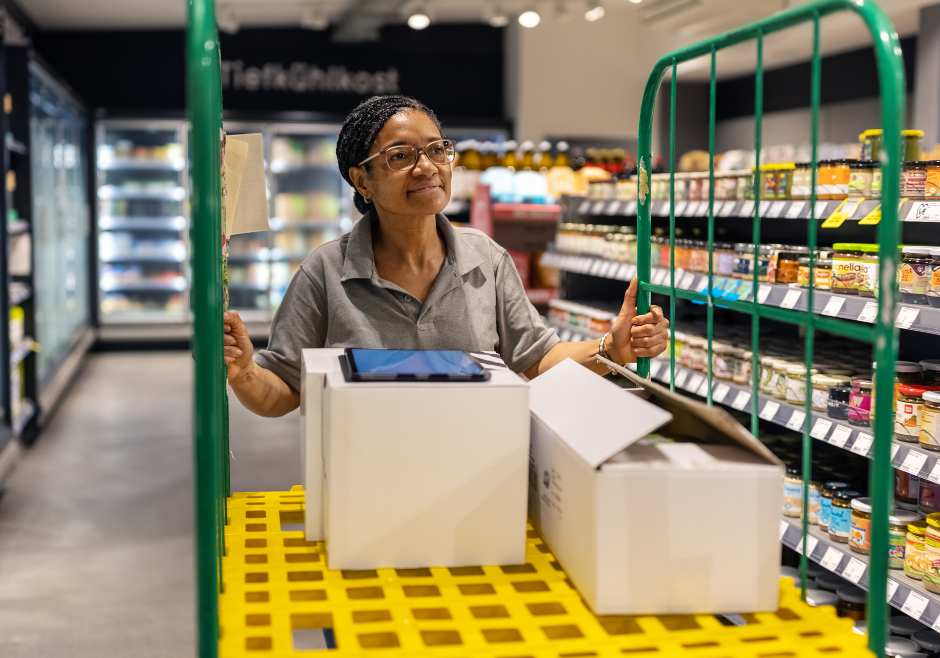Louisiana has the nation’s second-highest poverty rate and remains one of only five states without a minimum wage law on its books. A person working full time at the $7.25 an hour federal minimum wage – about $14,500 a year – is below the federal poverty line for every single household size. But low-wage workers won’t get a raise after the House Labor Committee, in what has become an annual ritual, voted along party lines against a bill to set a modest $10 an hour wage floor. It came a day after a different House committee voted to more than double the salary of legislators. The Lafayette Daily Advertiser’s Greg Hilburn reports:
Democratic Alexandria Rep. Ed Larvadain’s House Bill 374 would have established a state minimum wage of $10 per hour beginning in 2024 before gradually raising it to $14 in 2028, but opponents argued it would be a hardship on businesses and create job losses. … Democratic Natchitoches Rep. Kenny Cox, who voted for the bill, noted the effort to raise lawmakers’ pay to 75% of the state median income, which would be about $40,000. “But we can’t give poor folks $10 an hour,” Cox said.
The Labor Committee also rejected Rep. Delisha Boyd’s House Bill 40, which aimed to outlaw sexual identity and gender discrimination in workplaces.
That bill failed on a 7-5 party line vote with Democrats in support and Republicans opposed, despite Boyd’s claims that it would help grow the state’s workforce and be a particular help to vulnerable populations. “How are members of the LGBTQ community expected to live up to their fullest potential without gainful and meaningful employment?” Boyd said.
Lawmakers should prioritize young kids
High-quality early care and education programs can pay lifelong dividends by putting young children and families on a path to a brighter future. The vast majority of brain development occurs before children turn four, making access to these programs essential for future academic success. This access also enables working parents, especially working moms, to stay in the workforce. Louisiana recently ranked as the worst state in the nation for working moms. Paula Polito of Ellevate Louisiana, in a letter to The Advocate, explains what legislators need to do to ensure families have access.
If we invest in early care and education, we help working parents be productive and ensure all our children are ready to succeed from day one of kindergarten. The Early Childhood Care and Education Commission recommends the Legislature appropriate $315 million to early care and education this year — $200 million to retain 16,000 seats being lost to expiring federal funds and $115 million to expand access to 9,000 more in-need children aged birth to 3. This is a critical need. Let’s not go backward. Contact your legislators today and urge them to invest a minimum of $200 million in early care and education.
Reality check: The state House is poised to cut $51 million that Gov. John Bel Edwards proposed spending on the state’s Early Childhood Education program. As many as 5,000 students will lose access to slots in high-quality early childhood education programs if those dollars are not replaced.
Petrochemical industry playing defense
Residents of Louisiana’s petrochemical corridor between Baton Rouge and New Orleans experience some of the worst pollution in the nation, and the effects fall hardest on Black and Brown communities. They have been working for years to raise awareness of their plight, and their efforts recently got a major financial boost from Michael Bloomberg and his Beyond Petrochemicals campaign. But Louisiana’s economic interests and petrochemical giants are joining forces to create a new “sustainability council” to counter these efforts. Floodlight’s Pam Radtke reports:
“If they could do this with no money, imagine what would happen if they in fact had money,” said Beverly Wright, founder and executive director of the Deep South Center for Environmental Justice, one of the recipients of money from the Bloomberg campaign, an $85 million effort in Louisiana, Texas and Pennsylvania targeting 120 new proposed petrochemical facilities. “They should be scared,” Wright added. Matt Wolfe, vice president of communications at Greater New Orleans Inc., one of the groups leading the sustainability council, said the council wasn’t created in response to any specific project.
New Orleans area homelessness soars
Homelessness in New Orleans has risen to its highest rate since 2016 as pandemic-era benefits expire and rental prices soar. According to Unity of Greater New Orleans, the number of homeless people in the Crescent City, rose to 1,390, a 15% increase from the previous year. But the city witnessed a more than 50% increase in street homelessness, which includes people sleeping in tents and abandoned structures. Nola.com’s Ben Myers reports:
[Unity of Greater New Orleans executive director Martha] Kegel said post-pandemic inflation and the loss of housing stock from Hurricane Ida and short-term rentals have resulted in spikes in rent, evictions and homelessness after two years of relative stability made possible by federal pandemic aid. “You have to have forces that are driving up housing prices in a community in order for widespread homelessness to be created,” said Kegel. “You’re only going to have large numbers of homeless when you have housing prices that are out of reach for the poorest people.”
Number of the Day
52.2% – U.S. voter turnout for the 2022 U.S. congressional elections. This was the second-highest turnout percentage for a nonpresidential election year since 2000. (Source: U.S. Census Bureau)
